-
Welcome to rpgcodex.net, a site dedicated to discussing computer based role-playing games in a free and open fashion. We're less strict than other forums, but please refer to the rules.
"This message is awaiting moderator approval": All new users must pass through our moderation queue before they will be able to post normally. Until your account has "passed" your posts will only be visible to yourself (and moderators) until they are approved. Give us a week to get around to approving / deleting / ignoring your mundane opinion on crap before hassling us about it. Once you have passed the moderation period (think of it as a test), you will be able to post normally, just like all the other retards.
You are using an out of date browser. It may not display this or other websites correctly.
You should upgrade or use an alternative browser.
You should upgrade or use an alternative browser.
Dying Light 2 Stay Human - zombie survival with choice & consequence
- Thread starter zombietoads
- Start date
flyingjohn
Arcane
- Joined
- May 14, 2012
- Messages
- 3,248
All the cheap workers in Poland ain't enough to build your pyramids if the geometric shape of them keeps changing.
And why are exec even involved in design?I don't see McDonald's exec coming over and telling their workers how to make food,this seems to be a gaming thing.
And why are exec even involved in design?I don't see McDonald's exec coming over and telling their workers how to make food,this seems to be a gaming thing.
Child of Malkav
Erudite
Child of Malkav
Erudite
This seems to look like VTMB 2 dev hell.
Fascinating, they even felt the need to comment on this
https://www.gameinformer.com/2021/01/08/dying-light-2-art-director-leaves-techland-after-22-years
https://www.gameinformer.com/2021/01/08/dying-light-2-art-director-leaves-techland-after-22-years
In connection with the information about the departure of Techland’s Art Director, we would like to reassure all fans of the upcoming Dying Light 2 that the position of Art Director is not threatened and has been held by Eric Cochonneau since November 2019. Eric has been taking care of every aspect of the upcoming production ever since and the team under his leadership is doing their best to offer players the best game possible.
Paweł Selinger, who has been the Narration Designer for the last two years, decided at the end of 2020 to end his cooperation with Techland and to pursue his further career elsewhere. Paweł spent most of his professional life at Techland and he, among others, takes credit for the success of the series Call of Juarez. He left a large piece of himself with Dying Light 2, as he worked on the project from the very beginning. His duties, i.e. the narrative department, were taken over by Piotr Szymanek in October 2020.
We will be sharing exciting news about Dying Light 2 soon
thesecret1
Arcane
- Joined
- Jun 30, 2019
- Messages
- 7,039
Making fries at McD's is below the level of Mr. Executive Manager, so of course he doesn't even know what the menu is. Now, designing a game, that's like, a VISION, something befitting the demigod genius in a suit, so of course he will come and resolve all of the studio's problems with just a couple (mandatory) suggestions. It is a bit below his paygrade, true, but he is a generous guy and will do this service without complaining.And why are exec even involved in design?I don't see McDonald's exec coming over and telling their workers how to make food,this seems to be a gaming thing.
In all seriousness, in bigger companies, suits often feel like they know better than the designers because they know a bit about marketing, while in smaller companies, the exec (usually the company owner) thinks he's hot shit because he built this company with his own two hands, yadda yadda, mountains of experience, blah blah blah, and therefore, you should do this thing that was all the craze 10 years ago (which was roughly the time when he stopped playing video games). The designers then grow frustrated because he threw months of their work out the window, ordering them to do complete bullshit that they'll need to somehow accomodate now. They then go to the programmers announcing "Guys, we need you to rewrite several core mechanics and add a couple more, with possible frequent revisions from us since it's all subject to change, and no, we're not allowed to move the deadline, so we'll need to crunch", after which the programmers flip out because they know there's no way they can make it even with the crunching. This leads to major changes to the code being present not weeks, not days, but HOURS prior to store submission and release, so the QA department has no way to properly test the product and everyone just sort of hopes that somehow, the programmers managed to do all this shit without any bugs present. Meanwhile the programmers head out to get drunk because they know what's coming. The game then flops because it's buggy as fuck, unbalanced, and with mechanics that don't quite work right. When the reviews are in, the exec storms to the team pissed off and dejected, accuses everyone of being incompetent and ruining "his" game, and promises that next time, he will be a lot more involved with the project in order to make sure nobody ruins it. The team responds with several key members (especially from design team) handing in their resignations.
This is how shit games are usually made.
- Joined
- Apr 16, 2004
- Messages
- 6,953
While the meandering post above mine attempts to answer this, the simple answer is ego. There is something about entertainment companies (music, film, apparently games) and the executives that are attracted to them that prompts this kind of thing. I think it’s because entertainment has cultural cachet, so there’s a real ego boost to contributing to it. Unlike fast food which is killing broad swathes of the populace and the executives don’t want to dirty their hands with anything other than marketing, or engineering firms creating robotic death overseas for brown people speaking harsh languages. The only thing the executives of those companies want to influence is their employment contracts and liability disclaimers.All the cheap workers in Poland ain't enough to build your pyramids if the geometric shape of them keeps changing.
And why are exec even involved in design?I don't see McDonald's exec coming over and telling their workers how to make food,this seems to be a gaming thing.
entertainment had always attracted egocentric individuals, like moths to a flame.
DeepOcean
Arcane
- Joined
- Nov 8, 2012
- Messages
- 7,405
You forgot the part where they spent half the budget in Marketing so the game will sell well because consumers are sheep then Mr. Executive will keep doing his bullshit on the next project and the next project and the next project until finially the sheep cant take it anymore as the games are too shit even for low standards, after the debacle, the CEo of the company announces proudly that single player games are dead and games as a service is the new shit and we get an Avengers game every year.Making fries at McD's is below the level of Mr. Executive Manager, so of course he doesn't even know what the menu is. Now, designing a game, that's like, a VISION, something befitting the demigod genius in a suit, so of course he will come and resolve all of the studio's problems with just a couple (mandatory) suggestions. It is a bit below his paygrade, true, but he is a generous guy and will do this service without complaining.And why are exec even involved in design?I don't see McDonald's exec coming over and telling their workers how to make food,this seems to be a gaming thing.
In all seriousness, in bigger companies, suits often feel like they know better than the designers because they know a bit about marketing, while in smaller companies, the exec (usually the company owner) thinks he's hot shit because he built this company with his own two hands, yadda yadda, mountains of experience, blah blah blah, and therefore, you should do this thing that was all the craze 10 years ago (which was roughly the time when he stopped playing video games). The designers then grow frustrated because he threw months of their work out the window, ordering them to do complete bullshit that they'll need to somehow accomodate now. They then go to the programmers announcing "Guys, we need you to rewrite several core mechanics and add a couple more, with possible frequent revisions from us since it's all subject to change, and no, we're not allowed to move the deadline, so we'll need to crunch", after which the programmers flip out because they know there's no way they can make it even with the crunching. This leads to major changes to the code being present not weeks, not days, but HOURS prior to store submission and release, so the QA department has no way to properly test the product and everyone just sort of hopes that somehow, the programmers managed to do all this shit without any bugs present. Meanwhile the programmers head out to get drunk because they know what's coming. The game then flops because it's buggy as fuck, unbalanced, and with mechanics that don't quite work right. When the reviews are in, the exec storms to the team pissed off and dejected, accuses everyone of being incompetent and ruining "his" game, and promises that next time, he will be a lot more involved with the project in order to make sure nobody ruins it. The team responds with several key members (especially from design team) handing in their resignations.
This is how shit games are usually made.
Old Hans
Arcane
- Joined
- Oct 10, 2011
- Messages
- 2,242
man I just wanted dying light with more zombies and a bigger city BUT NOPE gotta have factions and branching story lines and a bunch of other non zombie related horseshit. what is the obsession with factions? Just add more zombies and bigger city to run around in you fat polaks
Wunderbar
Arcane
- Joined
- Nov 15, 2015
- Messages
- 8,825
vota DC
Augur
- Joined
- Aug 23, 2016
- Messages
- 2,383
Because realism. If everything is good you stay united otherwise when there is a menace around you start fighting each other.man I just wanted dying light with more zombies and a bigger city BUT NOPE gotta have factions and branching story lines and a bunch of other non zombie related horseshit. what is the obsession with factions? Just add more zombies and bigger city to run around in you fat polaks
Dexter
Arcane
- Joined
- Mar 31, 2011
- Messages
- 15,656
https://archive.is/ae2KC
Report: Techland Is Bleeding Talent Due To Autocratic Management, Bad Feedback, And Lack Of Direction
Behind the scenes of the studio making Dying Light 2.
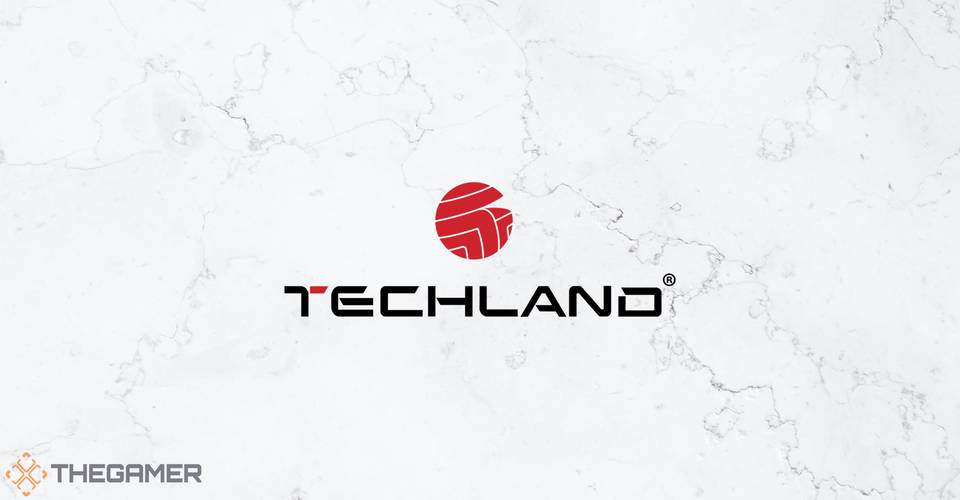
“It’s shit” - that’s the kind of feedback developers at Techland get from their leaders, the inner circle around CEO Pawel Marchewka. Interviews with ten current and former Techland staff, all of whom requested anonymity so as not to risk their careers, depict a studio marred by autocratic management, poor planning, and a toxic work culture that trickles down from the top. As one source claims, “The fish rots from the head.”
Over the course of my investigation, multiple people independently shared a story of an artist who turned in some work that management disliked. The feedback they received was "pedalski", which translates to "too f**got-like".
Speaking to Marchewka by email, he says this incident “touches on a very important issue” for Techland, which is trying to improve its communication standards.
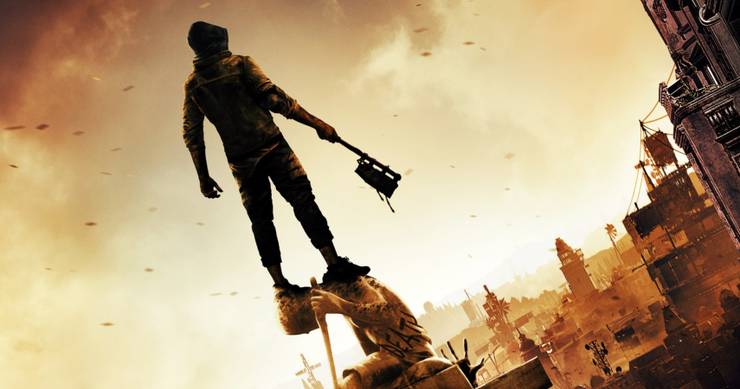
“Our job, in a nutshell, is to invent and iterate,” he explains. “When we're in the inventing phase, we have lively discussions with each other, clashing different ideas and opinions. Therefore, I can imagine that in a tightly-knit team such words could have been said. Nevertheless, this is not our standard and those phrases do not meet our criteria in any way. We always remind our employees to make sure they communicate appropriately."
“Techland takes the welfare of our staff seriously and we are always evaluating ways that we can learn and improve - that is the key to long-term success. We expect all our employees to set a good example and treat others the way they would expect to be treated themselves. To support that, we are starting a series of different training sessions [this year], including with specialists from outside our organisation. It is important that all of our employees know that we do not discriminate against anyone based on gender, colour, or sexual orientation.”
According to those I spoke to, however, this is far from an isolated event. In another meeting, the team was discussing the "modern dark ages'' - one of the core design pillars of Dying Light 2 - and one lead blurted out, “At least they knew how to deal with women back then!”
“This situation happened a few years ago and clearly words like these are inappropriate,” Marchewka says. “The person who is responsible for these words was reported to our Human Resources department and swift action was taken to ensure it didn’t happen again. We have a strong representation of women at Techland and we want them to feel supported at all times.”
While my sources confirm this incident did see an intervention from HR, it’s not clear if the culprit was reprimanded in any meaningful way. On top of that, it’s hard to feel like complaints about sexism are being taken seriously when the main feature of the CEO’s office is a photo of a naked woman next to a cheetah.
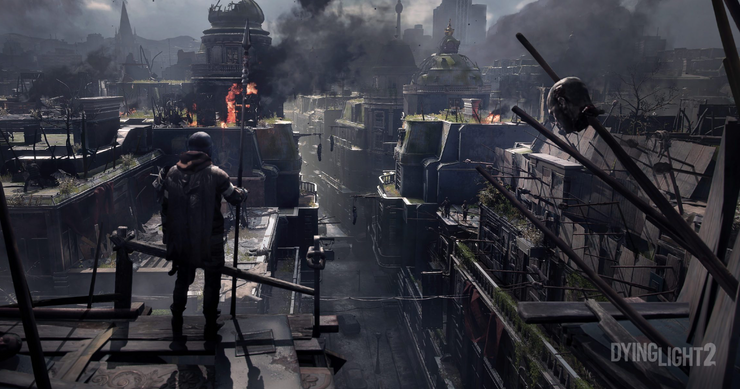
“The photo in question is by a famous English artist and conservationist David Yarrow, who I appreciate for his artistry, passion, and dedication to work, and I had never considered that it might offend anyone,” Marchewka explains. “I find him one of the best if not the best wildlife photographer. That's why I hung it in my office. But I want to make sure I set the right example so if any of our employees, anonymously, report that they feel uncomfortable with it I will remove it immediately.”
While the offer to ensure his staff are comfortable is surely welcome for the hundreds of developers at Techland, you might find it difficult to report a concern about your boss when the HR manager is his wife.
Techland’s CEO originally hired his wife, Aleksandra “Ola” Marchewka, to handle interior design and construction for the company’s new offices. Before Techland, she was a freelance legal consultant, according to her LinkedIn profile. After two years as a consultant, she became the only female board member at Techland. In February 2020, she took on the role of acting chief HR officer - according to her public work history, without prior experience in HR. Does Marchewka consider this a conflict of interest?
“No I don’t,” he tells me via email. “My wife is a professional and we have a professional relationship at work.”
According to my sources, Aleksandra Marchewka is a friendly, approachable person, but her relationship with the CEO makes it hard to come to her with work-based concerns. On the flip side, she also has the CEO’s ear, and people can sometimes use that to their advantage. Convince Aleksandra Marchewka of your idea, and she might be able to convince her husband for you. Elsewhere in the company, Pawel Marchewka’s sister is head of international sales.
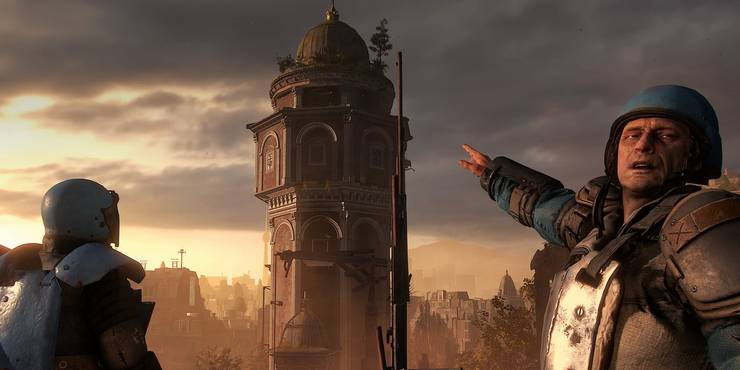
Just like those familial bonds in upper management, the CEO’s influence can be felt across almost every department, from the story team to art, and even marketing.
Marchewka is an ideas man, and he had some ideas to promote Dying Light 2. One plan was to drive an unmarked van down to the Mexican border and offload a pile of body bags, sparking a macabre ARG that would eventually reveal itself to be part of the game’s marketing campaign.
“In search of original solutions during brainstorming, we come up with a variety of sometimes crazy or simply impossible ideas,” Marchewka tells me. “Some of these ideas serve only to separate the imagination from limitations, and to be able to come up with unconventional and original concepts, and from there we will critique and evaluate the ideas presented. But it’s clear our team would not execute an idea like that.”
Another idea that was floated, just around the start of the pandemic, was to send out medical test kits. People would test themselves and get results back telling them whether or not they were susceptible to the game’s fictional pathogen. Because the kits were for real diseases, though, you might also find out you have something seriously wrong with you. Elsewhere, the team considered working with the United Nations to create a video advertisement. This advert would have a UN spokesperson talk about a place where people are scrambling to survive, fighting over water. It would reflect what’s happening in developing countries, as well as Flint, Michigan. The twist? It wasn’t a real city at all; instead it would be the fictional metropolis from the game.
“This is an idea that came up during the creative brainstorming session,” Marchewka says. “I support a working environment where everyone is free to suggest ideas and not every idea is a good one, and most of them will never see the light of day.”
So, who acts as the buffer between these ideas and their execution? Łukasz Janas is Techland’s new creative director of marketing. He joined the company from Kinguin, which is like a smaller G2A-style operation - a PC key reseller that’s extremely disliked in the Polish games industry. When he first joined the company around May 2020, the team was hopeful.
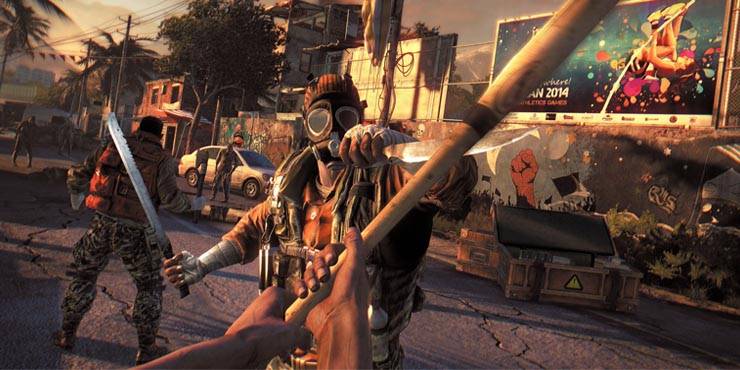
With limited knowledge of the games industry and the global market as a whole, that hope was short-lived. Many team members are of the opinion he doesn’t have the experience for the job. From an outsider’s perspective, you can see a decline in quality on the company’s Facebook page, with gaudy Cyberpunk 2077 congratulation graphics and a post that misspells “Christmas”.
“[There’s] the general consensus in Techland that marketing is not doing much and seems incompetent,” one source tells me.
“When projects do not move forward, you look for new solutions,” Marchewka tells me about his decision to hire Janas. “For many years we had been lacking a creative director that our marketing and PR needed. By employing Łukasz, we have gained a leader who strengthens the team, points it in the right direction, and has ambitions of a very high level of quality. From our time working together so far, I can tell that he has brought freshness, new solutions, and ideas to Techland.”
Of course, the problems at Techland run deeper than marketing - Janas is just a symptom of another issue. “The fish rots from the head.”
You can trace it all the way back to 2011 and the original trailer for Dead Island. A huge success for publisher Deep Silver turned into a curse for Techland. It was a CGI trailer, played backwards, that had very little to do with the content of the game itself. But it put Techland on the map. Marchewka has been trying to recapture that bottled lightning ever since. He’s even floated the idea of doing it again - creating a trailer for the studio’s other games and playing them backwards.
Marchewka wants to work with the best people in the industry, and so the studio constantly hires new experts. Presumably, this also helps to refill the ranks, since staff turnover is high - in the past couple of months, at least 20 people have left Techland, a studio of 400. That’s five percent of the workforce. Over years, the churn is much worse.
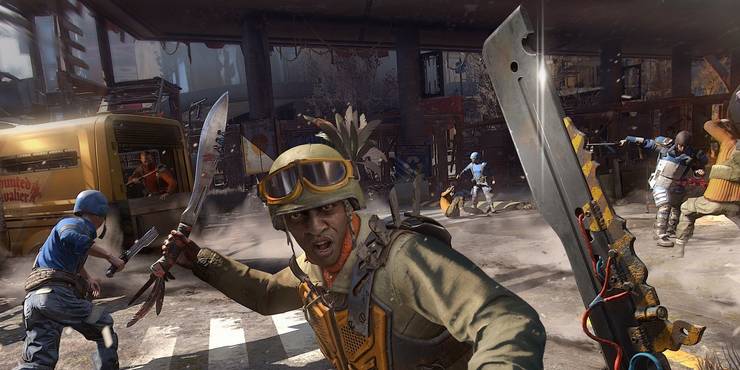
“Techland has a history of hiring people for which the team had ‘high hopes’, but it ended up in nothing,” a source explains. “One such case for the designers was the hiring of Marc Albinet, a former game director from Ubisoft, that was supposed to restructure how design is done in the studio. Even he, a veteran with 30 years of experience, couldn't break through upper management that is harder to change than the spin of the fucking Earth.”
“Whenever an expert starts advising things that are not aligned with the board’s agenda, they slowly get isolated from the project and responsibilities,” another source tells me. “That leads to them leaving or eventually getting fired. To make a career at Techland, you have to be subservient.”
According to Marchewka, the high staff turnover is just a natural aspect of triple-A game development. “We have been operating on the market for 30 years and many of our employees have been with us for a long time,” Marchewka says. “Making games is tough and it is normal that sometimes there is a need to change the workplace and look for new challenges. I am very sorry that some of our employees left us and decided to find their way outside the structures of Techland but I’d always wish them the best.”
Multiple sources tell me about a cult of external consultants. They claim Marchewka trusts outsiders more than staff, and often brings outside experts into the fold. Once they’re Techland employees, there’s a grace period of a couple of weeks where their ideas are still listened to - but that trust, too, soon dissipates.
Paweł Zawodny worked as a software developer at Techland for ten years before moving into a role as chief development officer, which he held for nine years. He and Marchewka had a high-profile falling out because Zawodny wanted to introduce a traditional development pipeline to make the company’s workflow easier. After the arduous work was completed on the first Dying Light, the unanimous sentiment at the studio was: “we can’t do that again”.
The chief development officer wanted to let developers iterate within widely used game engines like Unreal or Unity before introducing those changes to the studio’s proprietary engine, Chrome Engine 6. Marchewka wanted everything to go through Techland’s own engine. “It slowed everyone down and that frustrated everyone,” says one source. “He would ask why people aren’t working faster and it was because the tech isn’t up to speed. We can work faster, but we have to go here, and you’re not allowing us to go there. The experts know what the goal is, and they should be allowed the flexibility to do what’s best.”

“Techland has its very own way of producing games,” Marchewka says. “With each title, it is constantly adapted to the needs of the project, the size of the team, and other aspects affecting our work. I think that is what most companies across the world do.”
Zawodny had brought in consultants who mapped out how things work at studios such as EA and Ubisoft, but many of their suggestions to improve workflow were rejected. One of the things that came up during that time was that the CEO can’t be involved in every milestone check meeting.
“The person trying to implement it was blocked at every corner,” one source tells me. “They had a huge falling out. He went on leave for three months and never came back.”
Marchewka sees the situation differently. “Together with Paweł, we worked to improve the development process, following the example of other studios creating triple-A games,” he explains. “It was and still is very important to me. This work continued until Paweł decided to leave Techland and it still continues today.”
Zawodny went on to found his own studio, Strange New Things, which was acquired by CD Projekt Red shortly after.
"After decades of creating titles that were dictated by so-called market demand, [we] all reached a point when we decided to do something different - something that comes from ‘us’,” Zawodny said in a telling statement at the time. “We also felt that the way the industry giants work is outdated. We want to adapt to a new way of working and fostering teamwork - an evolutionary approach described as Teal - where there are no predefined hierarchies or roles. It’s time that we change the industry from the inside."
The current method of workflow in Techland is “a production pipeline that changes so quickly and rapidly that it might as well not exist,” according to one source. Techland has hired more producers to bring some kind of order to Dying Light 2’s production, but the old guard blocks anything the new blood attempts to implement.
“What's also strange regarding producers is they have a say in design,” a source explains. “They cannot hold the pipeline or milestones together, but they [have] time to redesign or argue about design.”
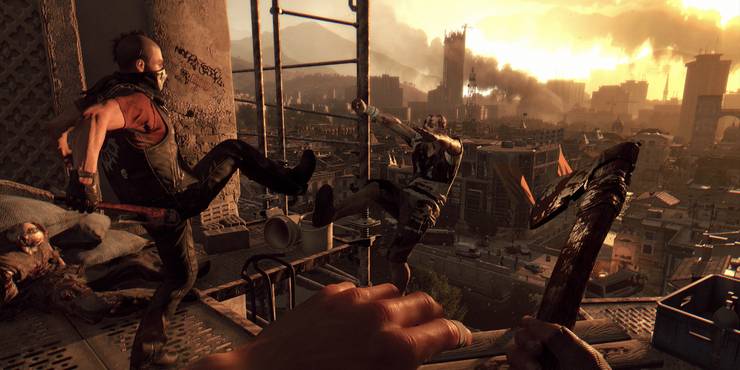
“The old producers were always a big problem,” another source confirms. “One producer would barge in with his ideas and solution for game design, even though he had no fucking idea about design.”
It’s a repeating cycle, and each new member of the team would see the problem as soon as they joined the studio. “As soon as they start challenging it, they’re out the door,” one source says.
Zawodny leaving was a bitter pill for Techland’s CEO to swallow, according to people familiar with the situation. This was made worse by the fact he ended up at CD Projekt Red, a company Marchewka is allegedly “laser-focused on”.
“His infatuation with CD Projekt is borderline unhealthy,” claims one source, and it’s a sentiment echoed by everyone I speak to. I’m told that Marchewka is constantly pushing for innovation, but he’s also always comparing Techland’s work to other studios and games, with CD Projekt in the crosshairs.
“One of his super strict rules for design is that ‘an idea can't be implemented if it doesn't have an existing reference from another game’,” one source explains.
This method of benchmarking against the competition is something else Marchewka admits to. “Each organisation should be aware of its competition and look at them, especially when it comes to internationally successful companies operating on the same market,” Marchewka explains. “It's natural that I pay attention to what others in our industry are doing, so when talking about examples of high-quality solutions, I often refer to CD Projekt Red. I point out that it is also a Polish company, so certainly our origins and roots should not be an excuse. However, the names of companies such as Riot, Blizzard, Ubisoft, Naughty Dog, or Rockstar are also often used in our company. It all depends on what part of the business we are talking about and what solutions we are currently working on.”
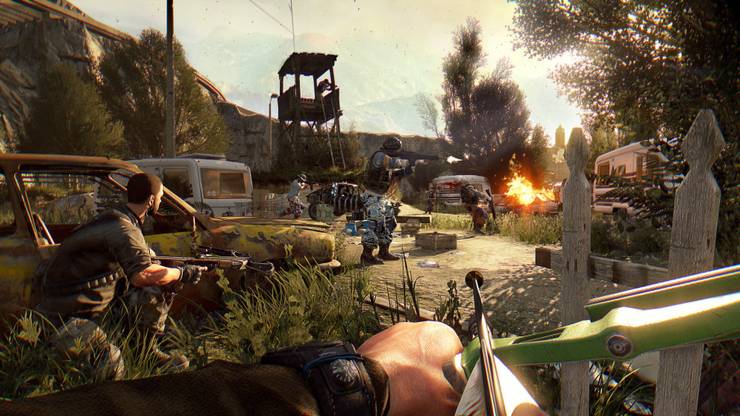
However, my sources claim it’s deeper than this, and so do reviews of Techland from former employees on job site Glassdoor.
“There is nothing wrong with benchmarking the competition, but [at] Techland it goes beyond any logical threshold,” another source confirms. “You are very often being asked or rather expected to show references of competitors' work before your own. It often ends up with simply re-doing what others did which has nothing to do with [the] creativity that the company is so big about. Not to mention how it affects people’s morale when they are not being trusted at all when it comes to their skills and creativity.”
Developers feel like they're in a state of flux, their ideas pushed aside so they can follow the trends of trailblazing studios.
“Company culture teaches you that you will never get anything approved,” one source explains. “This is actually a well-known joke at Techland that nothing is ever approved including the name of the game. You can be told to redo some work you had approved for a month just because the CEO changed his mind after seeing something on the internet. Then you are being told that you work too slow and you have no skills to deliver any work on time.”
In 2018, a creative copywriter who had been with Techland for five years decided to quit. When he did, Marchewka went over his work on Dying Light’s Steam page and got it completely reworked. This process continued until it was as if the copywriter never existed. There’s a general sense at Techland that nothing is permanent.
“Trust and the flow of ideas in a large organisation is a complex issue,” Marchewka says. “After all, you can trust someone, but not agree to their idea, because it is not, for example, the right moment to implement it or it does not fit the certain project. We are currently working on creating an innovative game that millions of players around the world will love, and thus we are constantly looking for methods that allow us to improve the transmission of fresh and interesting ideas. However, not every idea is a good idea for this project, and only the best and consistent ones with the vision of the project will be implemented in our game.”
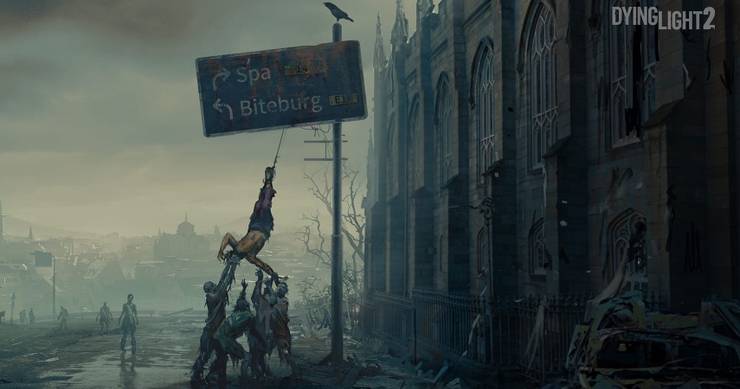
“Horrible management decisions and lack of a coherent vision are what make people just slowly spiral into an apathetic state,” one source says. “That and the constant changes that end up forcing people to scrap their work.”
Another person who worked on Dying Light 2 for multiple years tells me they “have no idea what the final game will be, or what the story is. It’s changed so much. People kept quitting, getting fired.”
The reveal of Dying Light 2 promised a tangled web of choice and consequence, where one playthrough will only allow players to see 50 percent of the game’s content, but much of that has been stripped back. Techland split with writer Chris Avellone after a host of sexual harassment accusations were levelled at him. After that, Paweł Selinger, the writer on the first Dying Light, stepped up.
According to my sources, Selinger felt like he was working with “Frankenstein’s monster” - a story stitched together by various parts, each of the five writing teams up to this point leaving behind a limb. On top of that, some former writers haven’t announced their involvement with the game due to strict NDAs. Selinger left Techland at the end of 2020. Piotr Szymanek, a television writer, has since joined the project.
“That was often the case with the writers - Marchewka never listened to what they had to say, relying more on outside ‘experts’ or his own ideas,” one source explains.
As well as the shifting sands of Techland’s “design through iteration” process, developers are battling against budget constraints. My sources claim that people are expected to come up with things “cost-free”. “Cost is always something [the CEO is] trying to maneuver around,” I’m told. “You can sometimes be working on something for weeks, but in the end you will hear that you won’t get the budget for it and you have to come up with something cost-free instead, even if you are being very clear about the estimated budget needed for a certain activity from the start.”
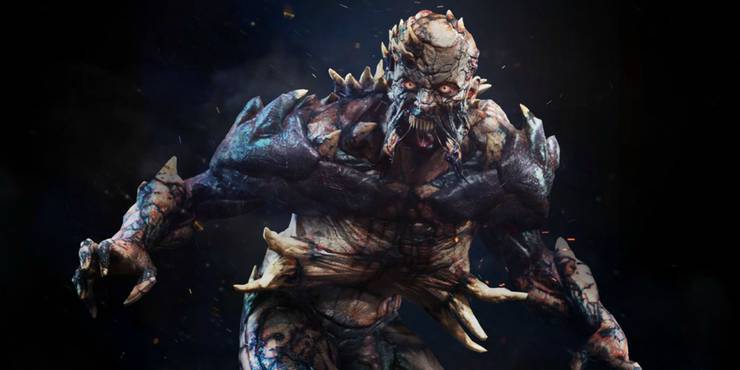
“Nothing comes without a cost in [the] game development sector,” Marchewka answers when asked if he makes developers come up with cost-free solutions to problems. “Our employees have the best studio with conditions adapted to the needs - great infrastructure at the desks and top equipment. I don't expect things to be done for free and I never ask for it, but I want our team to be cost-effective.”
If employees can’t come up with a “cost-effective” solution, they’re told they need to be more creative and think outside of the box.
“Techland in general has this creativity-killing vibe,” one person says. “Since everything at the end is changed by directors, every presented idea has to have plenty of references. If you have references from games Marchewka may not know about, you may as well not have any references, and anything slightly innovative or expensive is [off] the table immediately. Because of the culture inside the company, people quickly go into stagnation and give up on trying to innovate. The environment is stressful because you feel like you have to fight with everybody about everything instead of cooperating on a project. Everything is always challenged and even when something is ‘accepted’, it might be thrown out two weeks later by someone and then brought back months later. The cycle repeats and people are just genuinely tired.”
The developers at Techland refer to the CEO’s micromanagement as "the eye of Sauron" - an ever-watchful, omnipotent force. But there’s one discipline that’s safe from its gaze: programming.
“[Marchewka] can butt into every department except programming, because a programmer can just fire up a big line of code and say, ‘OK, how would you fix this?’,” one source tells me. “He would just not know what to do. Anything else - marketing, sound design, anything visual - the guy can just say ‘This sucks, change this’.”
This is made worse by the fact you’re at the whims of two people who can change each other’s minds at the flip of a switch. Marchewka might say your work is fine, but then creative director Adrian “Pyza” Ciszewski might disagree. Suddenly, Marchewka will disagree as well. “Has Pyza seen it?” is an inside joke within Techland because he’s one of the only people Marchewka defers to.
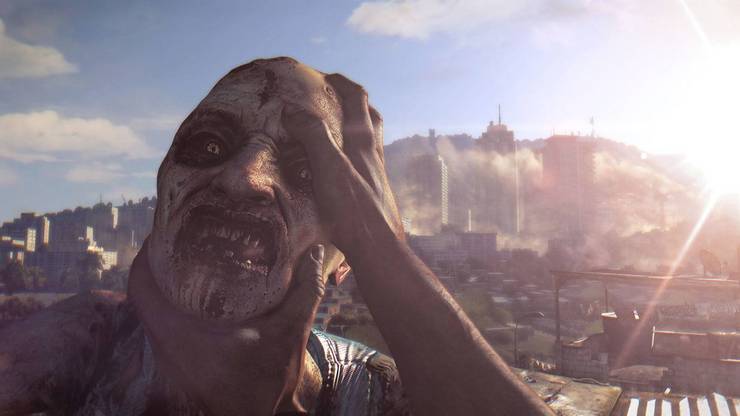
In a Polski Gamedev report, one person said: "Pyza coined the philosophy of ‘design through iteration’. Each time he makes a supposedly definitive, final decision... and then it turns out that he [hasn’t made a decision]. People worked to the max, thinking they were [almost done] but never finished. It burns them out.”
This is likely where another aspect of the studio’s past haunts them. The original Dying Light didn’t initially have its freeform parkour system, instead opting for a system where players could climb specific surfaces. It worked well in prototypes, but fell apart once it was stretched out to the open world. Through iteration, Techland arrived at what’s now the defining aspect of the game.
However, this style of iteration hasn’t always worked out. The first Dying Light’s story was rewritten at the behest of the CEO after cutscenes had already been created and VO recorded. It was a last-ditch effort and required extensive reworking of scenes to make the new script make sense. After all that work, the story was the one negative aspect of the game all critics agreed on at launch. Rather than taking responsibility, the person who created the game’s story trailer was blamed for inflating expectations.
“Techland’s philosophy about design through iteration [that] Pyza presented in [the] Polish article is total bullshit,” another source tells me. “What is going on in Techland is just total chaos, not iteration. There are plenty of examples where there is someone responsible for a given feature - like a game director decides on something - but Pyza and Marchewka just overwrite this because of some bullshit reason, like they've seen something working differently in other games so we can do it like that.”
This happens even when features or work have already been approved by someone senior in Techland’s hierarchy, and it extends beyond big picture things like game vision.
“It could also be something like the shape of spikes on the enemy, how [a certain] AI kicks the player, or some visual aspect where Marchewka will give his famous feedback like, ‘that just looks bad’ or ‘this character looks gay’, which is very useful feedback for specialists who work on such things for years, right? It is 100 percent true that there is nothing written in stone in Techland. Dying Light 2’s story was rewritten like six times or so. It could have worked in Dying Light because the project was smaller, but it makes production for Dying Light 2 - a much bigger project - just impossible to move forward.”
Eventually, when you’re told you’re bad at your job enough times, you start to believe it. "It's a terrible thing because it stays with you,” says one person I spoke to. “It makes you think you don't know shit."
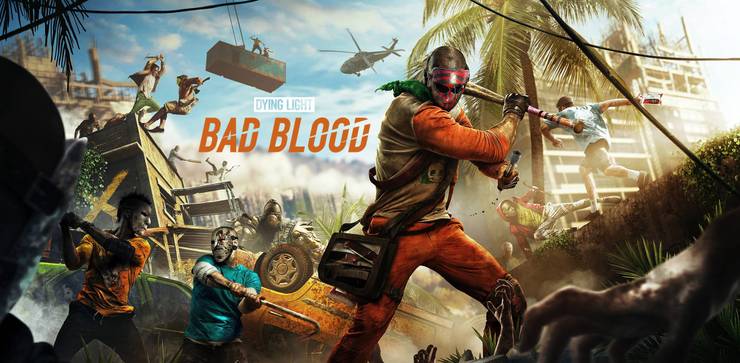
As well as the constant iteration, lack of direction, and absence of trust for the experts at the studio, the team are fed unrealistic deadlines in a misguided attempt at motivating people. Everyone must be “effective” at all times - otherwise, in the mind of the CEO, they are taking money from the company for nothing, multiple sources claim.
Dying Light 2 was originally planned to release in 2019, a date given by Marchewka himself. Much like the story with Cyberpunk 2077, this was an unrealistic deadline dictated by the CEO. “Marchewka decided on the date even though most of the employees knew it was impossible,” a source explains. “Thank god he backed out of it.”
One source tells me that they believe Marchewka “genuinely wants to do good but for some reason, he can’t”. Marchewka is the eighth-richest man in Poland, a self-made billionaire, and that status brings with it an unshakable self-belief.
“You’re going to get in fights with him no matter what,” a source says. “It’s just inevitable. I think he’s just that kind of person who likes to have combativeness. If he doesn’t like someone and he doesn’t want to talk it out, you’re done. If you push back one step too far, you’re done. But you have to tow that line. Because he wants you to push back, and that’s a good thing. But if you cross that line - that’s the issue. When things go wrong, he’s always looking for someone to blame. It’s never his fault. How can it be his fault when he’s a self-made billionaire?”
The result of all this is a team of hardworking, talented people who are being slowly drained of any enthusiasm. “The amount of passionate people and talent you can meet in Techland is overwhelming,” one source tells me, and it’s a sentiment reflected by everyone I speak to. “I’m talking mostly about regular staff here since leads seem to be really burned out and tired. Sometimes it even feels like they don’t care anymore, they will do whatever the CEO tells them to do in order to keep their position in the company safe. It is very sad to see this enthusiasm and potential being wasted.”
Last edited:
lycanwarrior
Scholar
- Joined
- Jan 1, 2021
- Messages
- 1,515
So basically CD Projekt Red all over again.
Sigh...
Sigh...
rusty_shackleford
Arcane
- Joined
- Jan 14, 2018
- Messages
- 50,754

niceThe feedback they received was "pedalski", which translates to "too f**got-like".
"culprit"According to those I spoke to, however, this is far from an isolated event. In another meeting, the team was discussing the "modern dark ages'' - one of the core design pillars of Dying Light 2 - and one lead blurted out, “At least they knew how to deal with women back then!”
“This situation happened a few years ago and clearly words like these are inappropriate,” Marchewka says. “The person who is responsible for these words was reported to our Human Resources department and swift action was taken to ensure it didn’t happen again. We have a strong representation of women at Techland and we want them to feel supported at all times.”
While my sources confirm this incident did see an intervention from HR, it’s not clear if the culprit was reprimanded in any meaningful way. On top of that, it’s hard to feel like complaints about sexism are being taken seriously when the main feature of the CEO’s office is a photo of a naked woman next to a cheetah.
lmfao I hate journalists so god damn much
The Jester
Cipher
- Joined
- Mar 1, 2020
- Messages
- 1,744
Get fucked.
They deserve all of it for ditching Master Chris Avellone.
Last edited by a moderator:
Gerrard
Arcane
- Joined
- Nov 5, 2007
- Messages
- 13,090
I honestly don't know what anyone was expecting form the team that did literally zero improvements to the first game, while releasing 50 shitty DLC packs that just make the already awful crafting menu even more of a pain in the ass to navigate.
The CEO is so infatuated with CDPR that I'm sure he'll be delighted when the game repeats Cyberpunk's "success".
The CEO is so infatuated with CDPR that I'm sure he'll be delighted when the game repeats Cyberpunk's "success".
Well that's definitely the type of wording to use when you have something positive to share, for sure...
Sweeper
Unwanted
- Joined
- Jul 28, 2018
- Messages
- 4,145
I wish companies would stop using PR speak to bullshit people. I mean at this point we all know it ain't happening, or if by some miracle it does see the light of day it'll be a complete mess. No one is falling for the corporate speak, it's just so fucking tiresome.
Old Hans
Arcane
- Joined
- Oct 10, 2011
- Messages
- 2,242
Well that's definitely the type of wording to use when you have something positive to share, for sure...
our development process is like a terrible car crash. Thank you.
Child of Malkav
Erudite
I have seen this kind of PR talk before. This game is in dev hell. Well, RIP.
















